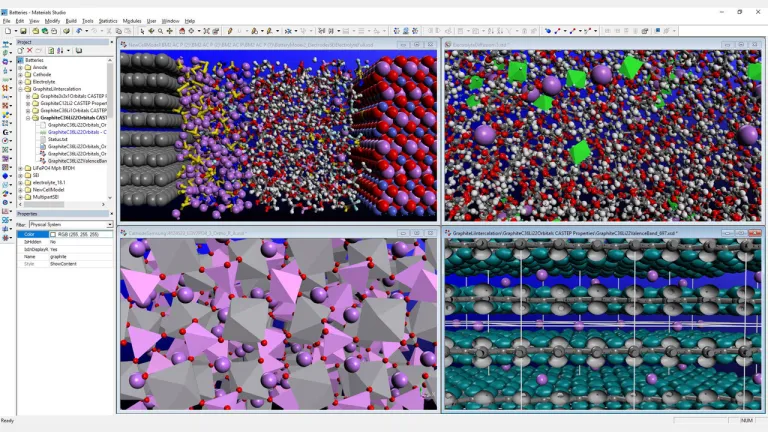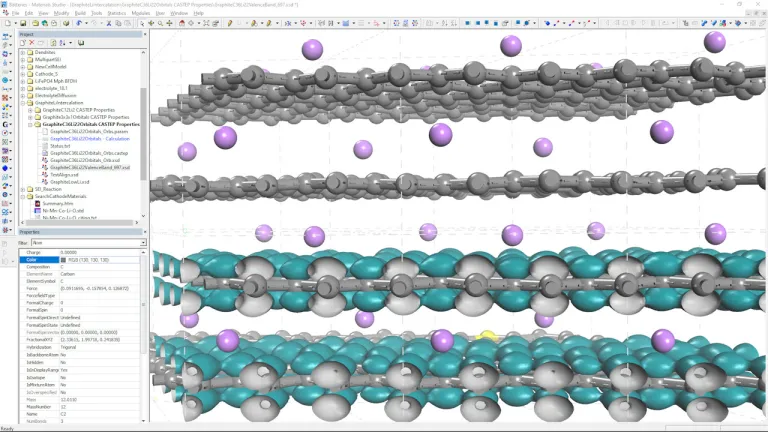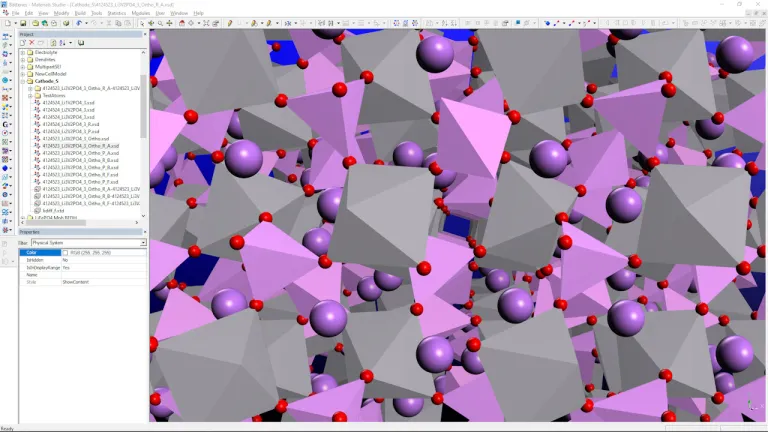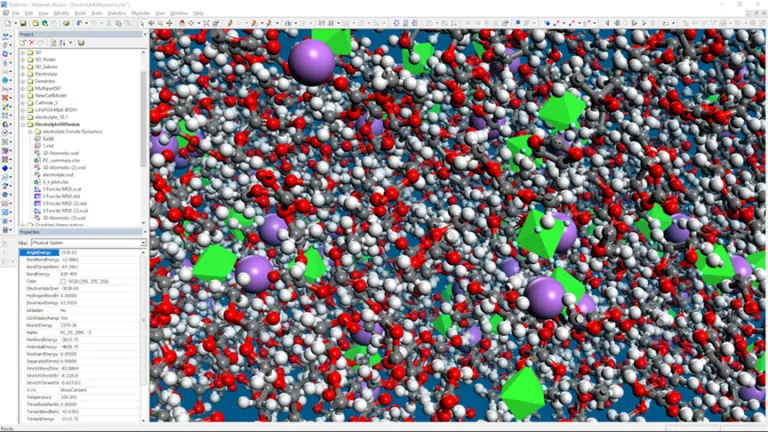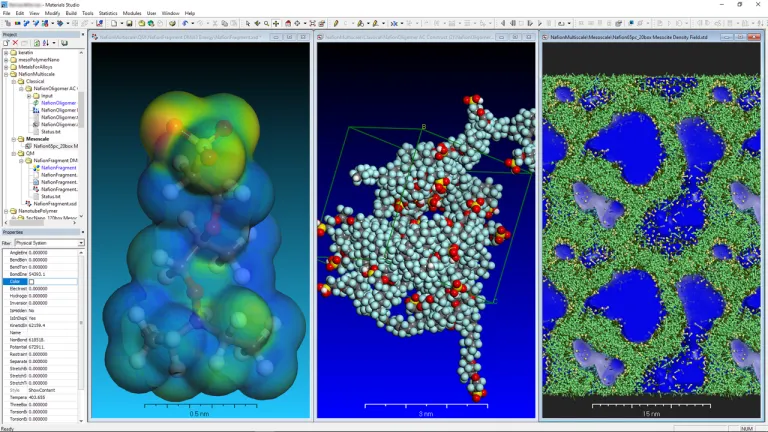Batteries & Hydrogen Fuel Cells
Empowering the Virtual Design of Battery Materials and Fuel Cells
Advanced Material Design to Increase Battery Performance
Lithium-ion batteries have fundamentally transformed energy storage, from personal electronics to the ongoing electrification of transportation. Demands for improved safety, battery lifetime and energy density require new battery material choices to be explored: new electrolyte formulations, and novel cathode and anode materials. Research is also exploring paradigm-shifting alternatives to battery materials design such as solid electrolytes and even the replacement of lithium with other, more abundant metals such as sodium, calcium and magnesium.
Accelerate the Design of Sustainable Energy Source
BIOVIA Materials Studio can be applied to study the most fundamental issues of materials design and connect seamlessly with battery cell and pack simulations - providing the link between materials choices and the battery performance.
BIOVIA Materials Studio supports the characterization and development of existing and novel battery and fuel cell materials. Coupled with the broader portfolio from Dassault Systèmes, materials scientists can accelerate the design of sustainable, safe and reliable energy source and storage.
- Anode
- Cathode
- Electrolyte
- Hydrogen Fuel Cells & Electrolyzers
Anode
- Predict the transport of lithium ions in the anode and how the lithium ions arrange within the anode during charging and discharging
- Determine the processes which lead to graphene exfoliation and overall anode degradation
- Explore the factors which control the growth and stabilization of the solid electrolyte interface
- Determine the atomic-scale mechanisms for degradation in battery performance such as the formation of metal dendrites
Cathode
- Calculate the Open Cell Voltage (OCV) for various cathode materials to estimate the charging and discharging curves
- Assess changes in cathode structure during cycling to determine its impacts on overall cathode capacity
- Explore and optimize the interactions between the cathode surface and various coatings
Electrolyte
- Calculate the diffusion of lithium ions throughout pure electrolytes or mixtures
- Investigate how electrolyte molecules are broken up and incorporated into the solid electrolyte interface during operation
- Determine the properties of electrolyte additives to assess how they influence the performance
- Predict the viscosity of electrolyte formulations
- Materials Studio may also be combined with COSMOtherm to predict the safety of electrolytes based on properties like vapor pressure and flash point
Hydrogen Fuel Cells & Electrolyzers
- Optimize polymer membrane durability and performance through predictions of morphology and impact on proton diffusion and water transport
- Understand membrane degradation mechanisms
- Reduce costs by screening for alternative electrode materials
- Supply materials data and insights to Finite Element (SIMULIA Abaqus) and system models (CATIA Dymola) of fuel cell and electrolyzer assemblies
Explore Our Methods
The world of product development is changing. Discover how to stay a step ahead with BIOVIA
Join the conversation in the BIOVIA Materials Studio User Community!
Also Discover
Learn What BIOVIA Can Do for You
Speak with a BIOVIA expert to learn how our solutions enable seamless collaboration and sustainable innovation at organizations of every size.
Get Started
Courses and classes are available for students, academia, professionals and companies. Find the right BIOVIA training for you.
Get Help
Find information on software & hardware certification, software downloads, user documentation, support contact and services offering

